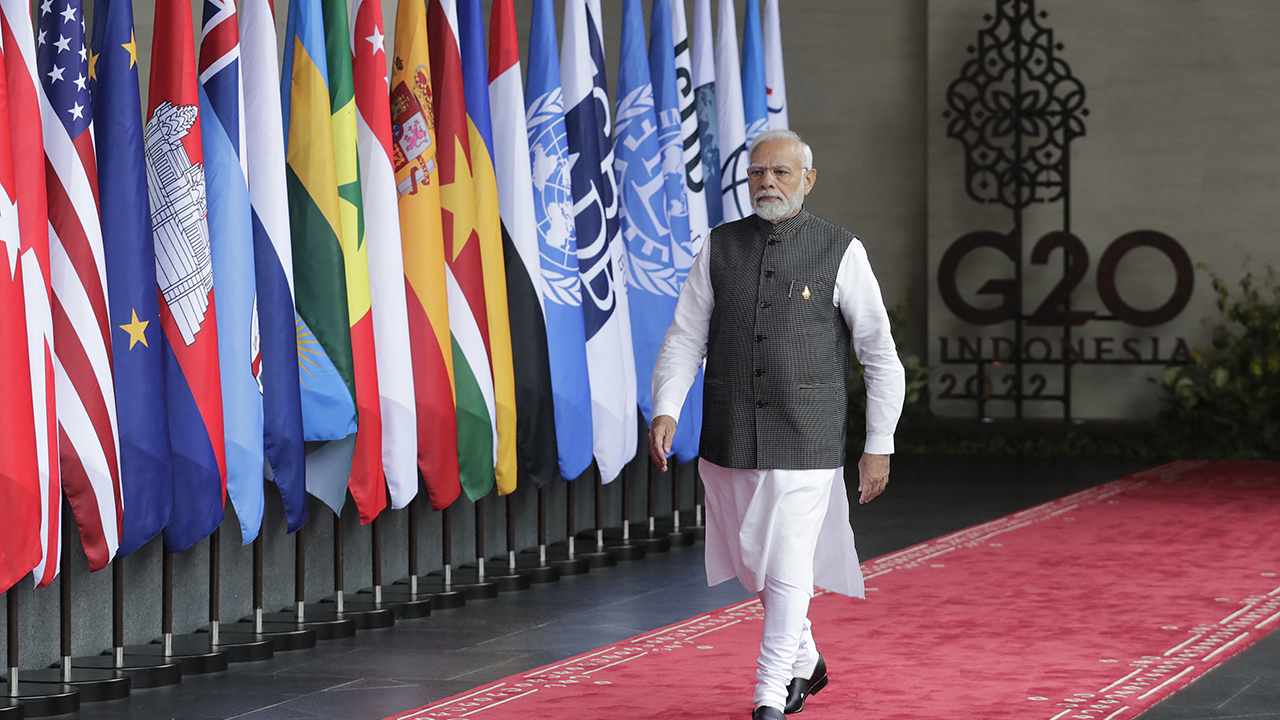Most military, business leaders call Chinese hacking a serious problem for U.S.
Almost nine in 10 retired military leaders said cyber attacks from China are a serious problem for the United States.
Almost nine in 10 retired military leaders said cyber attacks from China are a serious problem for the United States.
In his address Thursday on U.S. counterterrorism policy, President Obama defended the use of drones, which has the support of the U.S. public but is strongly opposed abroad.
As the nation prepares to celebrate Memorial Day, most Americans have feelings of pride in the soldiers who fought in America’s post-9/11 conflicts. But the public that will be observing the holiday is also one increasingly disconnected from the military.
Test how much you know about economic attitudes in the world, based on an international survey by the Pew Research Center's Global Attitudes Project.
Publics around the world are decidedly unhappy about their nations’ economies. However, citizens of emerging market countries are overall more pleased with their economies than are people in advanced or developing economies. A median of 53% in emerging markets say their national economy is doing well, compared with 33% in developing countries and 24% in […]
Overview Publics around the world are decidedly unhappy about their nations’ economies. Most are displeased with current economic conditions and concerned about rising economic inequality; few are optimistic about the coming year. However, at the same time, most global publics say their personal finances are in better shape than their national economies, according to a […]
As Secretary of State John Kerry visits the Middle East this week in the hope of reinvigorating the dormant Israeli-Palestinian peace process, he will confront considerable public skepticism in the region about the prospects for peace.
As Turkey’s Prime Minister Recep Tayyip Erdogan meets with President Obama today, his calls for more Western aid to Syrian rebels put him at odds with Turkish public opinion. A Pew Research survey conducted earlier this spring found that 68% of Turks opposed Western countries sending weapons and other supplies to anti-government rebels in Syria — […]
Overview Two years after the overthrow of Hosni Mubarak, the Egyptian public mood is increasingly negative. Month after month of political uncertainty, a weak economy and often violent street protests have taken their toll, and today a majority of Egyptians are dissatisfied with the way their new democracy is working. Only 30% of Egyptians think […]
Today, it is the European Union itself that is the sick man of Europe. Efforts over the past half-century to create a more united continent are now the principal casualties of the ongoing eurozone crisis. This creates yet another complication for European leaders as they attempt to craft a way forward in dealing with the economic and political consequences of the ‘Great Recession'.
Across 12 countries, a median of 40% of adults say they have no confidence in Indian Prime Minister Narendra Modi to do the right thing regarding world affairs. About eight-in-ten Indians have a favorable view of Modi.
Majorities in most countries say China does not take into account the interests of other countries in its foreign policy, and China does not contribute to global peace and stability.
Across 24 countries, large shares have an unfavorable view of Russia and no confidence in Putin to do the right thing regarding world affairs.
Overwhelmingly, people believe the U.S. interferes in the affairs of other countries, but most also believe the U.S. contributes to peace and stability around the world. U.S. President Joe Biden receives mostly positive reviews.






